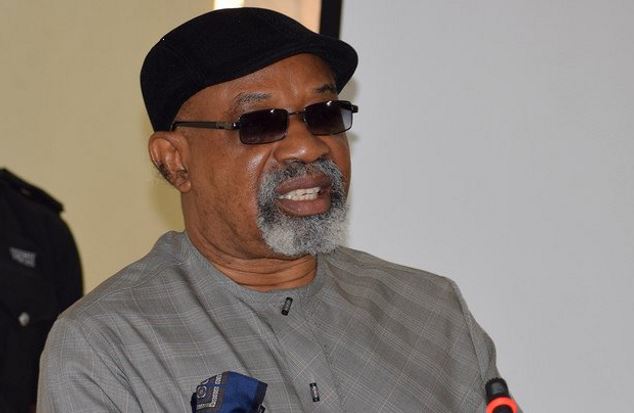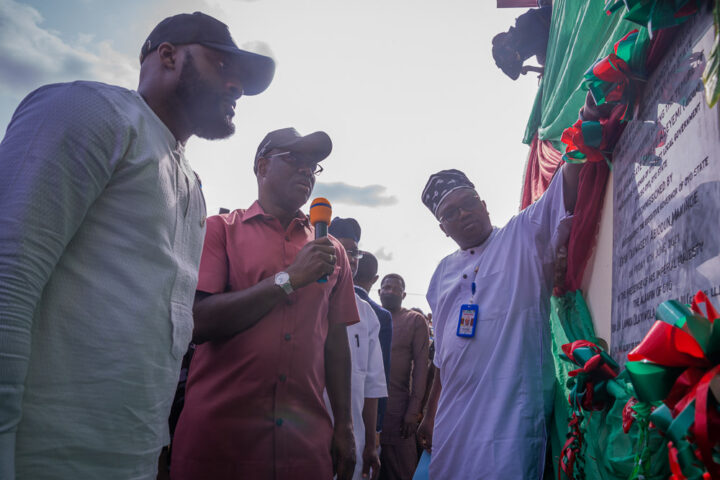On Friday, the federal government announced the suspension of Twitter, the microblogging and social network service, in Nigeria.
Lai Mohammed, the minister of information, who announced the “indefinite” suspension, cited persistent use of the platform for activities capable of undermining Nigeria’s corporate existence.
Twitter’s suspension comes days after a post by President Muhammadu Buhari on the 1967 civil war was deleted by the microblogging platform.
In a series of posts on Twitter on Tuesday, the president had condemned the attacks on government facilities in the country, and citing a reference to the civil war experience, threatened to treat those “bent on destroying” Nigeria “through insurrection” in “a language they understand”.
Advertisement
Defending Buhari’s post, the information minister had condemned the deletion of the president’s post and accused Twitter of “double standard”.
Mohammed had also added that the mission of the social networking service as it concerns Nigeria is “suspect”.
With this ban, Nigeria joins the list of countries such as China, Iran, North Korea that have restricted the use of the platform.
Advertisement
IMPACT ON VARIOUS ECONOMIC ACTIVITIES
The ripple effect of the ban will impact economic activities some of which are sources of income to millions of young Nigerians.
The suspension will reduce traffic on online news platforms that leverage Twitter to extend their reach and bring news closer to the people.
For telecos, the suspension will also mean a dip in data revenue as Twitter remains one of the most popular social media platforms in Nigeria. Telecos also resolve several of their customer complaints through their social media handles and also intimate them on latest promotions will have to deploy another means to achieve this going forward.
Advertisement
The popularity of the social media platform has seen a growing number of young Nigerian influencers who are often recruited by public relations companies to promote brands. The suspension of Twitter will halt their sources of income and also affect the reach of these brands.
Fintech companies that do not have a brick and mortal branches use Twitter to intimate customers on their products offerings and promotions, all these will also take a hit and slowdown government’s financial inclusion drive.
For investment platforms such as Piggyvest, Flutterwave among others, this latest development will mean a change in their strategy of reaching out to their customers online.
All these will further slowdown economic activities when Nigerians are battling with the triple-whammy impact of sluggish growth, high unemployment rate, and rising inflation.
Advertisement
The ban on Twitter is also coming at a time when the nation’s economy is just crawling from the pandemic-induced economic contraction. The last first-quarter gross domestic product report released by the National Bureau of Statistics indicated that the nation’s economy grew 0.51 percent.
Femi Adeoti, a financial analyst, noted that the decision to place a ban on Twitter was ill-conceived.
Advertisement
“But most importantly, it’s sending a wrong signal to foreign investors and development institutions that the government in Nigeria is still suppressing free speech even after years of its democracy.”
This is not the first time government policies and decisions have impacted negatively the nation’s economic growth.
Advertisement
In December 2020, Isa Pantami, minister of communications and digital economy, had directed the Nigerian Communications Commission (NCC) to audit the subscriber registration database.
The directive instructed mobile network operators to suspend the sale, registration, and activation of new SIM Cards until the completion of the audit exercise.
Advertisement
The controversial policy denied new entrants into the country access to purchase mobile lines while existing users who want to retrieve their lost lines were not allowed access.
The NCC recently announced an extension of the NIN and SIM integration exercise till June 30.
The knock-on effect of the policy was seen in the Q1 growth for the sector. The information and communication sector, one of the most resilient sectors, recorded a growth rate of 6.47 percent — first single-digit growth since the first quarter (Q1) 2020. The performance in the sector was a result of a 7.69 percent sluggish growth in the telecommunications sub-sector — single-digit growth since Q1 2020 — when it recorded 9.71 percent growth.
According to NCC, subscribers in Nigeria’s telecoms market declined by over 12 million during the period.
Add a comment







